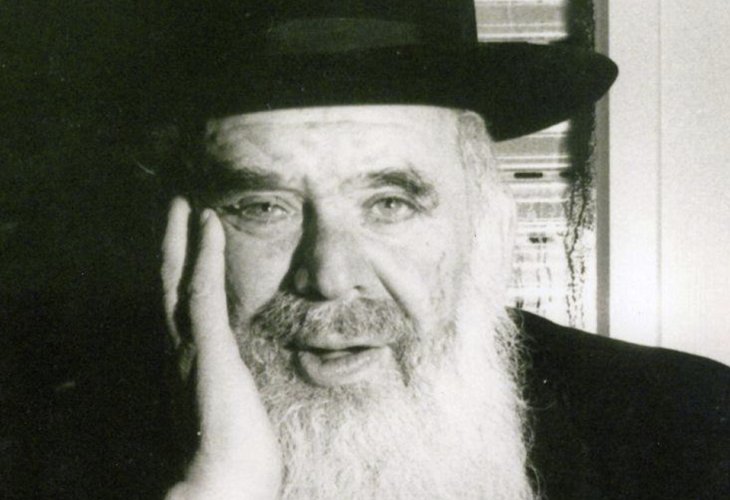Personal Stories
Rabbi Chaim Shmuelevitz: The Rabbi Who Cried for Every Jew
How Rabbi Chaim Shmuelevitz’s deep prayers and endless care shaped generations of students and comforted a struggling nation.
 Rabbi Chaim Shmuelevitz z"l
Rabbi Chaim Shmuelevitz z"lThis Friday, the 3rd of Tevet, marks 46 years since the passing of Rabbi Chaim Shmuelevitz. He was one of the greatest Torah leaders of his generation—the head of the Mir Yeshiva in Lithuania, later in Shanghai during World War II, and finally in Jerusalem. His life was filled with challenges, deep emunah (faith), and a heart that felt the pain of every Jew. The stories that follow are only a glimpse into his greatness.
One of his students recalled a small, but unforgettable moment. The Rabbi had asked him to help new students from abroad find chavrutot—study partners—for learning Torah. The student hesitated and said, “But I haven’t found a chavruta for myself yet.” Rabbi Chaim looked at him and gently replied, “Forget about yourself. When you help others, Hashem will help you too.” And so it was.
Rabbi Chaim constantly reminded his students that we must carry each other’s burdens. One former student once asked him whether he should attend a special ceremony for Telz Yeshiva—where he had studied in his youth—or stick to his regular Torah learning schedule. Rabbi Chaim didn’t rush to answer. He sat quietly for a long time, deep in thought. Finally, he said with emotion that could be felt in every word: “I cannot tell you exactly what to do. But I want you to remember one thing, and say it to yourself often: Gratitude is the entire person.” That sentence stayed with the student for life—and it wasn’t just advice. It was the way Rabbi Chaim lived.
His gratitude extended beyond people—it reached Heaven. Even in the middle of learning a difficult page of Talmud, if Rabbi Chaim felt stuck, he would rise from his seat, walk over to the Holy Ark in the yeshiva, and pour out his heart to Hashem like a child to a parent. He would cry and ask for understanding, for help to grasp the Torah’s wisdom. His prayers were not separate from his learning—they were part of it.
In his later years, Rabbi Chaim would travel with his students to the holiest sites in Israel. They would visit the Western Wall, where generations of Jews have prayed for thousands of years. They would stand at the grave of Rachel Imeinu, where our matriarch Rachel is known to weep for her children. They would go to Me’arat HaMachpelah, the Cave of the Patriarchs, in Hebron, the resting place of the forefathers and mothers of the Jewish people. And they would travel up north to Meron, to the tomb of Rabbi Shimon bar Yochai, the great sage of the Zohar. At each of these holy places, Rabbi Chaim would cry deeply, pouring out his heart for the Jewish people, praying for their welfare and redemption.
At Rachel’s Tomb, he once prayed with special emotion. “Mother,” he whispered in Yiddish, “in Heaven they told you to stop crying. But I, your son Chaimke, say—don’t stop. Keep crying for your children until Hashem brings mercy and redemption.”
At that same moment, a woman was on the other side of the partition. She was childless and brokenhearted. With trembling voice she cried out to Rachel: “You, too, once had no children. You know my pain. Please, plead for me to have a child.” Rabbi Chaim heard her and turned to her gently, saying, “Your prayer has been heard. You will have a son next year. I will be the sandak (godfather) at his brit (circumcision).” And that is exactly what happened.
Rabbi Shmuelevitz felt the suffering of others so deeply that it often affected his health. During the Entebbe crisis, when Jews were held hostage by terrorists, he became physically ill from worry. When Rabbi Yitzchak Hutner was kidnapped, Rabbi Chaim led public prayers, calling on all Jews to storm the heavens with their tefillot (prayers). He would even move his own Torah lectures to different hours so he could join communal gatherings at the Kotel to pray for others.
Rabbi Shlomo Zalman Auerbach once ran into Rabbi Chaim at the Kotel. To his surprise, Rabbi Chaim stayed only for a moment and left. “Someone came to me,” he explained, “and told me about a very sick person. I was moved to tears and thought—it is fitting that I cry these tears at the Kotel. So I came, shed two tears, and now I am going back.”
Rabbi Chaim passed away on the 3rd of Tevet, 5739 (1979), and was laid to rest in Har HaMenuchot in Jerusalem. Thousands came to honor him. Rabbi Elazar Menachem Man Shach eulogized him, saying, “With the death of Rabbi Chaim, the diligent ones have ceased.”
But his voice, his tears, and his teachings still echo. His message was simple yet powerful: never forget the power of prayer, of gratitude, and of caring deeply for one another.

